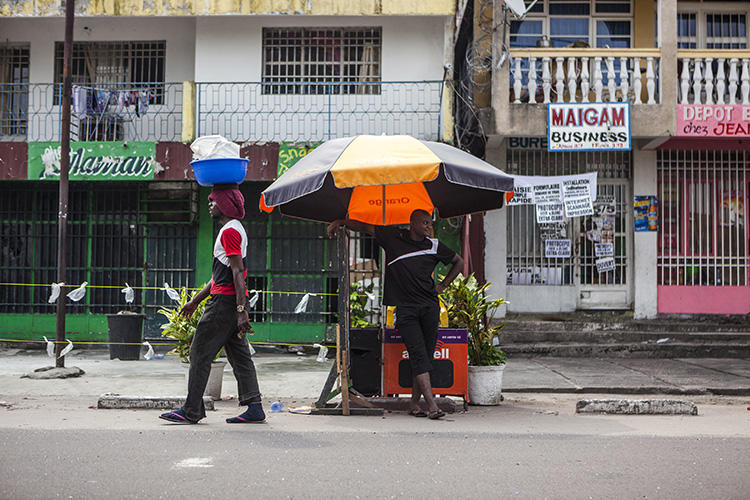Goma, October 12, 2018–Authorities in the Democratic Republic of the Congo should immediately release Sylvanie Kiaku, editor of the privately owned weekly newspaper La Percée, who was arrested on October 10 in the capital, Kinshasa, and drop charges of criminal defamation against her, the Committee to Protect Journalists said today.
According to a report by local press freedom group Observatoire pour la Liberté de la Presse en Afrique, Kiaku was arrested on the evening of October 10 on her way home from work by officers of Kinshasa’s judicial police after an arrest warrant was issued by a local magistrate.
Kiaku was held overnight in a cell at Kinshasa’s Gombe Peace Court before being taken to the prosecutor’s office and charged with criminal defamation yesterday, her lawyer, Dieudoné Mpoyo, told CPJ. After spending another night in the court cell, she was transferred today to Kinshasa’s Central Prison, Mpoyo said. Kiaku was not able to immediately pay bail of US$1,000 that was set by the court today, he said.
“Authorities must release Sylvanie Kiaku without charge and allow her to return to work,” said CPJ Africa Program Coordinator Angela Quintal from New York. “We repeat our call for the government in the DRC to abolish criminal defamation in line with international standards and ensure that journalists are free to report on matters of public interest without fear of reprisal.”
Kiaku was charged with criminal defamation for publishing two articles in La Percée on September 6 and September 13 about unpaid salaries of employees at a major bank for more than 10 years, the negative consequences for their families, and the alleged indifference of the bank’s current managers who have yet to pay what is owed, Mpoyo said. CPJ attempted to call La Percée today but was not able to speak with anyone.
CPJ’s repeated calls to the office of the prosecutor in the Gombe Peace Court went unanswered.
Kiaku was previously arrested on April 8, 2011, and spent 24 hours in detention on criminal defamation charges for an article denouncing a surge in vandalism in Kinshasa by gangs of young boys commonly known as “Kuluna,” according to Mpoyo, who was also Kiaku’s lawyer in that case, and a news report by La Prospérité newspaper published by the news aggregator website AllAfrica.com. The 2011 defamation charges were dropped, Mpoyo said.
In recent months, CPJ has documented how journalists in the DRC have been harassed, arrested, and convicted as a result of their reporting, including for criminal defamation.
